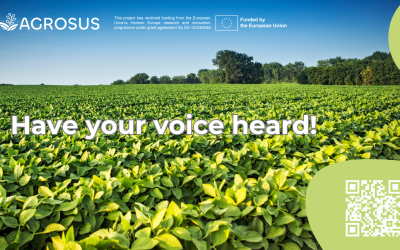Macaronesian region
According to the European Environment Agency, the three European archipelagos constitute a unique bioregion, known as the Macaronesian Biogeographic Region. Although, Macaronesian Region includes four Atlantic archipelagos, three of which Azores, Madeira, and Canary Islands, belong to Portugal and Spain, and one is an independent country, Cabo Verde. More however, Morocco’s coast border and some regions of Portugal (Serra da Arrábida and Algarve native forest) are sometimes included in Macaronesia Region, because of flora remains belonging or like native Laurel Forest (Laurisilva), that in Madeira is classified as a UNESCO Human Heritage. The combined population of Macaronesia reaches more than 3,200,000 people, 67% of it inhabiting Canary Islands.
The climate variate from maritime temperate in Azores to the subtropical and semiarid climate of Canary Islands. Madeira has a Mediterranean and subtropical climate. Average annual temperature ranges from 16oC to 26oC, average cumulative precipitation reaches 1,200 mm.

The Agrosus project will be realized in Madeira Archipelago, a Portuguese Outmost Region, that has been used as a genetic resources transfer and acclimation platform, characterized by rich agrodiversity, whereas coexisting European crops and cultures, with subtropical ones, introduced from the four continents. Agriculture is realized in traditional Madeiran agrosystems called Fazenda, small size farms, below one hectare, organized in one or more small terrace plots (poios), bounded by volcanic stonewalls, irrigated by water canals (levadas), that bring water from upper mountains. Madeiran fazendas historically are the first agrosystems created by Europeans in outmost territories, enriched by the traditional knowledge of mainland settlers and abroad native populations. Poios played an important function in the settlement, through the creation and organization of the territory and food security of populations.
Agriculture is mainly a familiar based on low input, rotation, intercropping or pluricultural practices. Although south and north coast fazendas closer to sea level usual were used to produce more economically important crops, among them vineyards and custard apple, are important ones. These cultures are produced both under conventional and organic farming practices and represent important incomes for the farmers. Weed control is a key issue for vineyards and custard apple producers, that use herbicides (conventional farmers) or mechanical (organic and conventional farmers) and biotechnological (organic farmers) techniques to control the presence of Cyperus rotundus L., Penisetum clandestinum. During AGROSUS project will be studied different agroecological approaches to control these weeds in an attempt to assist farmers to limit their economic impacts and reduce the use of agrochemicals.
Portugal
Partner responsible: Universidade de Madeira (UMA)
Country Leader: Miguel Angelo A. Pinheiro de Carvalho
Contact: miguel.carvalho@staff.uma.pt
Experimental unit
(1) Viticulture and the wine industry are some of the largest sectors of the agri-food industry worldwide. In Portugal, the wine industry is considered one of the main sectors of the economy. Madeira wine is the main product originating from wine production on Madeira Island. Madeira wine is the main product originating from wine production on Madeira Island. Madeira produces about 4032 tons of grapes per year, covering a total area of 403 ha.
(2) The custard apple (Annona Cherimola Mill.) is a plant that originated in the valleys of the Andes Mountains and was introduced to Madeira in the 17th century by Madeirans returning from South America. Custard apple easily adapted to the climatic conditions of Madeira as it found similar conditions to those of its geographical area of origin. Since the year 2000, the custard apple has had a Protected Designation of Origin (PDO) recognized and registered by the European Union, according to Regulation (EC) No 1187/2000. The area occupied by the crop currently covers a total area of 120 ha with an average annual production of 627 tons.
Pedoclimatic conditions
Type of soil: Umbric Andossols (1,2) – Haplic Phaeozems (1)
Mean annual T: 17.4-17.6 °C
Mean annual P:44 (1) – 64 (2) mm
Key figures
Farming systems: 2 Conventional and 2 organic
Crops: Custard apple (P) and Vineyard (P)
Crop Link groups: 2
Co-creating workshop: 2
Co-validation workshops: 4
Videos
News related
Our Portuguese partners held a productive co-creation workshop at Macaronesian Region
The co-creation workshop organised by our partner, the University of Madeira (UMA), took place on 29 February at the Escola Agrícola de Madeira in the capital city of Funchal.
AGROSUS launch a survey for farmers across the 11 biogeographical regions to select the best agroecological strategies
AGROSUS (AGRoecological strategies for SUStainable weed management in key European crops) is a four-year transdisciplinary research project. The project aims to identify appropriate tools and agroecological strategies to prevent and manage weeds in relevant crops, in...



















